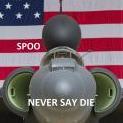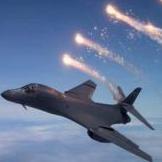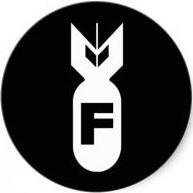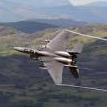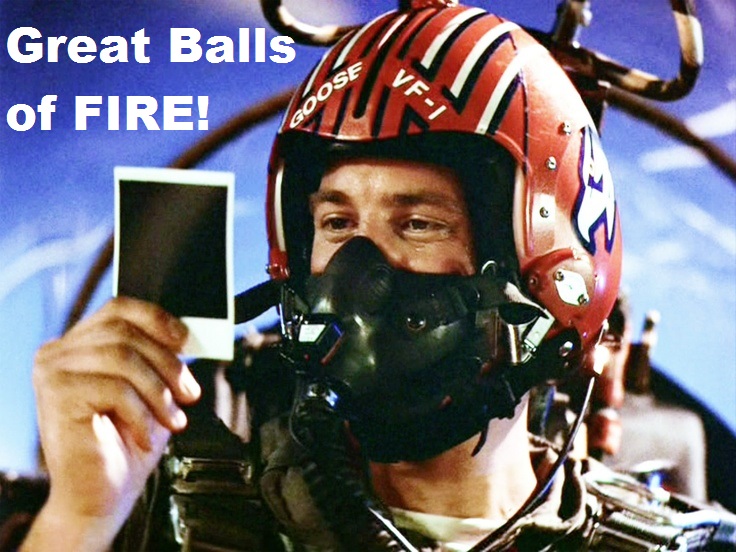Leaderboard
Popular Content
Showing content with the highest reputation on 11/07/2016 in all areas
-
Hmm, that's not what I gathered from his post. I could be wrong, then again I thought I was wrong once but I made a mistake. At any rate, a 365 may or may not be in your future should you take the bonus. This was one of the major considerations I made before deciding not to take the bonus. If I was in a different spot in my career, i.e. a school guy on a vector, this may not have been a big deal. Should I get tagged with a 180 or 365, I can choose to go or not. That ability to choose only cost me $225k. What's it worth to you? Can you stomach the 'died for a year with a bunch of passed over majors who can't/don't mentor and probably can't E&E out of the Chicago projects? I had some good mentors in my career- ironically the best was in the Robot community. However, I- like others have eluded too- ignored that mentorship in favor of my own wants/desires. Sure enough, it got me right where I thought/they said it would- back in the cockpit but stuck behind my peers. You have some good dudes here trying to give you the advice you're looking for, including some very accomplished grey-hairs who continue to frequent this forum despite the overwhelming sport b1tching that goes on. The impression I get is you've made your decision and you're looking for sympathy. Then again, I could be wrong... Sent from my iPhone using Tapatalk2 points
-
2 points
-
I think you are confusing mentorship with advocacy and sponsorship. When you say your "PRF looked pretty good"...I hope you mean because you had a record of superb performance, stratifications, contribution...not that actual way the PRF was written. Your tone seems to indicate otherwise, as in your mentor showed you how to write a grammatically perfect draft for your supervisor. I am not trying to be an asshole and yes I get it, there are still some lazy supervisors out there who take a "draft" OPR or PRF and push it forward, but the rules have become so extreme with regard to how things are worded, quoted, documented...this is really commander business and has zero to do with mentoring. Yes your mentor may help you work through goals and important boxes that must be checked for promotion, but there is FAR more to it. My concept of mentoring and what I tried to do for many people over many years was provide LIFE and Career advice that often included a dose of painful feedback. Mentoring is often more about listening than speaking and while the advice may focus on building a successful career, it should not be the only intent. I've mentored good folks through very bad times including divorce, a death in the family, PTSD and just dealing with the normal stresses of life. I escorted a very good friend to mental health when he discovered his wife was cheating on him and sat there with him for hours, she was his world and it took him down at the knees, thankfully he recovered. I've wept with parents as they processed the loss of a child. And sadly, I've sat with a son as he processed the death of his father. Mentoring is SO much more than career advice. I'll get off my high-horse now because trust me, I have fucked up just as much as I've gotten right, I just have very strong feelings on the subject mainly because any success I had as an aviator was because of two people who mentored me and demanded I be a better person and aviator. Mentorship is not perfect and sadly mentors can fail...sometimes miserably. I counted Baba Rand as a mentor for many years and when it counted most, he wasn't there. Maybe instead of asking if the system needs more mentorship, we should all just go out and do it.2 points
-
Drinking bourbon from the skulls of vanquished enemies after a day of strafing downtown Raqqa in my open canopy P-51. Obviously.2 points
-
BTW Slick, the following is not mentorship: "Mentorship was pretty consistent since I was being groomed." This is advocacy/sponsorship.1 point
-
This one really took a turn for the "what the hell?!" I'm sure we've each had good, bad, or nonexistent experiences in the mentoring department. Just like mentors you learn from the bad ones almost as much as from the good. Or at least you should. What I'm saying is you should be able to take something away regardless of the advice given. You may not like what you hear. You may think said mentor is out to lunch. Thems the breaks. It's equally an opportunity to provide the two way street you lament not receiving here, Slick. Be an instructor. Don't tell everyone CH's advice isn't mentoring... tell them why. (Youre wrong by the way, IMHO) Tell us "What I'm looking for is ...." You alluded to your time spent joint - what's mentoring look like to those joint guys you mentioned? What would they expect if they asking the same questions? Please tell us, because I for one want to compare it to my similar experiences with our sister services. Otherwise the petulant whine (and the cry me a river 'everyone is ganging up on me' self-pity BS) has no place, especially in a conversation about mentoring... Chuck1 point
-
What I normally hear is that no one today gives a shit and doesn't provide mentoring to junior officers. That seems to be what I initially thought you were saying... However, what I think I hear you saying is that you only want to be mentored on those things that you ask about. Never mind any blind spots that you may have or any other wisdom someone may be able to share with you. Here's some more unsolicited advice, aka mentoring. If you don't want advice, don't ask. True mentoring provides the good, the bad and the ugly. Obviously a conversation is better than an anonymous post on the interwebs, where there is too much opportunity for misunderstanding. Sent from my iPhone using Baseops Network Forums1 point
-
CH , I think your version of mentoring properly acknowledges that the air force is more than just a job - it's a huge part of a person's life. Navigating through life trials is made more difficult by the military, and leaders who recognize this and attempt to mitigate some of those negative effects can have profound impacts on not just a person's career, but their life. Really well said, and I hope other people read your thoughts and take them to heart.1 point
-
The other half of mentoring is the person being mentored has to been willing to listen and apply the advice they received. I got some great mentoring from a 1-star (then BGen Keltz) but like a dumbass, I didn't listen and now I'll retire as an O-5 instead of as an O-6... I've always tried to mentor people coming up behind up and help them learn from my mistakes but the "take-the-advice" rate only seems to be about 50/50.1 point
-
Well....just received notification that I was selected for C17's for the 183rd in Jackson,MS. I appreciate all of the insight I've read on this board.1 point
-
Let me qualify the following by mentioning that I was a T-38 FAIP. That means that my opinion - while informed on the topic - is also biased because I believe that I am fvcking awesome. Deal with it. I think we need FAIPs at UPT, and UPT would be a worse-off place without them. Sure, there are plenty of LTs walking the halls of any UPT base, and there are plenty of those LTs that can get shouldered with some bitch work around the squadron. But really, those cats are students in a challenging course, and their time needs to be protected by their flight commander and other leadership to make sure they spend their time and focus in the right place: Mastering the basic flight admin they won't have the time to learn later. So, because those LT studs definitely CANNOT be tasked with many of the things around any SQ that you'd normally give to a LT or young Capt wingman in a CAF squadron, someone has to be there to pick up the slack. This is where your young FAIPs come in, and this is also why being a FAIP has some pretty awesome and pretty not-so-awesome aspects. You can (and absolutely SHOULD) fly and instruct your fvcking ASS off as a FAIP. On the other hand, you're going to get some shit duties around the squadron, and you'll probably be working longer hours than your average fresh-from-the-CAF 4FL Viper/Eagle guy who's now flying white jets. That's ok...that CAF dude needs a little break. Now, because FAIPs end up a bit behind the power curve when they hit the CAF, they gotta be wise to this and have good leadership show them how to be prepared for later. Personal/professional goals might be easier to accomplish in that AETC assignment than later in the CAF. Developing winning habit patterns related to basic admin, study, and work ethic pay big dividends later. LISTENING WELL to the older dudes from the CAF and internalizing their lessons can be huge. These things enable a FAIP to hit IFF, RTU, MQT, and beyond with the basic skill set that will ensure success. It goes without saying that squandering that time as a FAIP will bring one to the opposite extreme. So my advice to FAIPs is this: Don't think that anyone (you, the USAF, your career as a pilot) has hit the big PAUSE button the moment you graduated UPT. While your UPT bros are off doing fun and amazing shit, don't forget that they are growing as pilots and as professional officers. YOU MUST ALSO GROW. Find ways to do that in the situation you've been given, don't slack, and always keep your scope open and set to long range search so you're prepared for the next step of your flying career. Do all that while flying your ass off and you'll be fine.1 point
-
Interestingly...a lot of BUFF-BASHING going on from people who've never flown them. Unleashed, that aircraft can deliver devestation the likes of which haven't been seen since 2002. She may not be pretty, but she sure as hell is sexy where it counts.1 point
-
1 point
-
So I read I read your post and (and a few others) that seem to throw heavy guys who tracked T-1 maybe not under the bus but definitely into oncoming traffic, at first I was pissed (not that it matters) but after gonking a bit I realized it is just a reiteration of a theme I have heard before in muted tones, that we are basically inferior as pilots and I will assume that attitude carries over to us as officers as by your anecdotes we're lazy barely trainable retards. I wish to dispel you of that idea. I'm not going to get into a dick measuring contest with you on quals, instructor/evaluator time, chief of shop(s), FTU cadre, air medals (single events or cumulative), times shot at, times actually in danger or all the other shit that goes into a military flying career over multiple operations, AORs and other missions but sufficient to say when I look back at mine and other "fatty" pilots (actually I like that) the idea that we are stupid, lazy ignoramuses is complete bullshit that needs to stop. I realize that the power of that intellectual statement is overwhelming so I will expound... 1- We tracked T-1 because that is how the order of merit at Track Select placed us and some deliberately chose T-1s. Not me, I wanted to 38s but I didn't place high enough so I gratefully took my T-1, worked hard, enjoyed it and look back with pride on what I accomplished. Sometimes when you have a group of really strong, fast runners the difference between first and last is actually not that much, it is just that in that competitive a race, the 0.1 seconds make the difference, it is not that number 3 or 4 are slow or weak it is just that the race was that competitive. 2 - We worked hard in T-1s and accomplished a difficult syllabus that was not spoon fed to us and we were expected to perform, held to high standards and had the motivation to perform well as we all wanted as you said "pick their top choices based off location and lifestyle". If by our T-1 order of merit we were higher ranking, then we got to pick a better assignment, I can only speak for my class and the others I had friends in but no one slowed down because no one wanted to get stuck somewhere they didn't want to be doing something they didn't want to do. That was going to happen to somebody as there are a finite number of the "dream jobs" but everyone I knew worked hard to have the most control over there own fate, we would have greatly have appreciated having a lazy turd in our class to be a target for a less than desirable assignment but alas we all worked hard and hence kept all of our class working hard. They were not allowing T-1s to track bombers when I was going thru (2000 timeframe) but had they been allowing it, I would have worked my ass off for it. I worked hard, didn't get my first choice but not my last either. I look back and realize my job was not glamorous but important to do well, didn't expect a backslapping recognition for doing it as best I could and moved on. If your community (I assume B-1s) didn't get product they were completely happy with don't stereotype us all. It could have been supplied thru a poor selection process, thru a selection process deliberately fed misfit toys to get rid of them or just not taken seriously by the releasing command(s). 3 - We fly aircraft that take airmanship, intelligence and a strong work ethic to learn to operate, manage the missions, lead the crew, support the team and roll with the punches when things go south. This is recognized and why several friends of mine (all T-1 tracked, heavy drivers) have gone on to fly U-2s, attend TPS, flown for the 89th, exchange tours and the like. Yours truly is a mediocre officer and I rate myself average yoke operator but I was cut from the same training cloth as those other heavy guys who have done more than me, the example of what they have done should give people pause before they have someone all figured out.1 point
-
I was raised being taught that painting over history was stuff the Soviets and People's Republic of China did...not America.1 point




.thumb.jpg.9c390ca8e6e624c0547abd6a3f6885b5.jpg)
